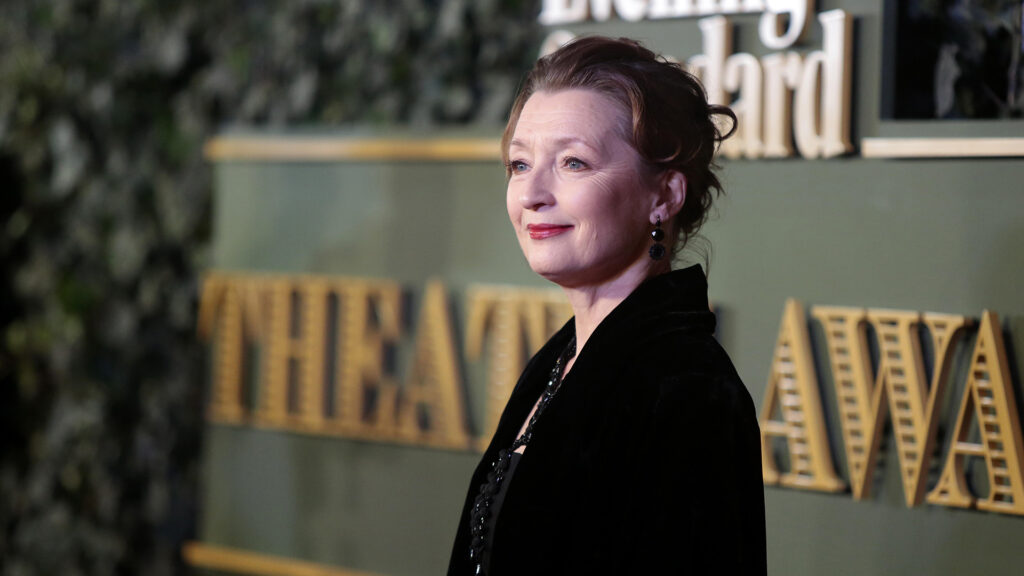Lesley Manville is a name that resonates deeply within the world of acting. With an illustrious career spanning several decades, Manville has made a name for herself as one of Britain’s most versatile and accomplished actresses.
Her body of work, ranging from film and television to theater, showcases her incredible talent and adaptability across a wide variety of roles. This article takes an in-depth look at her career, examining her early life, rise to prominence, key performances, and her lasting influence in the world of entertainment.
Early Life and Beginnings
Born on March 12, 1956, in Brighton, East Sussex, Lesley Manville grew up in a working-class family. From a young age, it was clear that she had a passion for performing. She trained as a soprano singer in her youth, but her interest in acting soon took precedence.
After attending the Italia Conti Academy of Theatre Arts, Manville started performing in theater productions and quickly established herself as a talent to watch. By her late teens, she had already worked with the Royal Shakespeare Company, marking the beginning of what would become a long and successful relationship with the stage.
Breaking Through in British Television
Manville’s early years in acting were marked by appearances in British television dramas during the late 1970s and early 1980s. One of her first significant roles came in the long-running British TV series Emmerdale Farm in the mid-1970s.
Though these early roles weren’t always headline-making, they were essential in honing her craft and expanding her repertoire. Her television career, especially in these formative years, laid the groundwork for her future successes, giving her the ability to seamlessly transition between different mediums of performance.
Collaboration with Mike Leigh: A Defining Partnership
Lesley Manville’s long-term collaboration with director Mike Leigh is often considered the cornerstone of her career. Leigh, known for his improvisational approach to filmmaking and dedication to naturalistic performances, found in Manville the perfect creative partner.
Their first significant collaboration came with the film High Hopes (1988), where Manville delivered a compelling performance as a working-class woman in a rapidly changing London. However, it was their later collaborations that truly cemented Manville’s status as one of the finest actors of her generation.
In Secrets & Lies (1996), one of Leigh’s most critically acclaimed films, Manville’s brief but memorable role highlighted her ability to create fully realized characters with limited screen time.
Her performance in All or Nothing (2002), where she played Penny, a long-suffering working-class mother, remains one of her most heart-wrenching and lauded performances.
Perhaps her most celebrated collaboration with Leigh came in Another Year (2010), in which Manville played Mary, a lonely woman struggling with emotional and social isolation. The role garnered her numerous award nominations, including a BAFTA nomination, and showcased her remarkable depth as an actress.
Manville’s ability to balance comedy and tragedy, often within the same scene, is what made this performance stand out and what has come to define much of her work.
Success on Stage: A Theatrical Force
While Manville has gained global recognition for her work in film and television, her contributions to the theater are equally significant. She has taken on numerous challenging roles, many with the Royal Court and the National Theatre. Her performances in productions like The Doll’s House and Ghosts further solidified her reputation as a commanding stage presence.
In 2013, her role as Helene Alving in Ibsen’s Ghosts, directed by Richard Eyre, was hailed as a masterclass in acting. Manville’s portrayal of a mother trapped in the moral and societal constraints of her time was described as both powerful and heartbreaking.
The role won her an Olivier Award, marking one of the highest points of her stage career. The success of Ghosts also translated to a broader audience when it was filmed for television, further cementing her place as one of the finest British actors of her generation.
International Recognition: The Crown and Beyond
Despite her longstanding success in Britain, it wasn’t until later in her career that Manville began to receive widespread international recognition. Her role in Paul Thomas Anderson’s Phantom Thread (2017) brought her to a new level of acclaim.
In the film, she played Cyril Woodcock, the stern and stoic sister of Daniel Day-Lewis’s character, Reynolds Woodcock. Manville’s performance was critically lauded for its subtlety and strength, earning her nominations for both an Academy Award and a BAFTA.
Her ability to convey layers of emotion with the smallest gestures or shifts in tone made her performance one of the highlights of the film.
More recently, Manville has been cast in the critically acclaimed series The Crown, where she plays Princess Margaret in the fifth and sixth seasons. This role, following in the footsteps of Helena Bonham Carter and Vanessa Kirby, is one of her most high-profile to date, introducing her to a broader international audience.
Her portrayal of the complex and often troubled royal is expected to be one of the standout performances in the final seasons of the globally popular series.
Legacy and Influence
Lesley Manville’s career is a testament to perseverance, versatility, and raw talent. Over the years, she has moved seamlessly between theater, television, and film, delivering consistently remarkable performances
. Her partnership with directors like Mike Leigh has not only shaped her career but has also contributed significantly to British cinema. Moreover, her ability to tackle complex, emotionally challenging roles has made her an inspiration to a new generation of actors.
In an industry often obsessed with youth and appearance, Manville’s rise to international fame later in her career serves as a reminder that talent and dedication can prevail over fleeting trends. She has demonstrated that meaningful, impactful performances transcend age, and her work continues to be a beacon of excellence in acting.
Conclusion
Lesley Manville is a rare talent whose career trajectory defies the typical Hollywood narrative. From her early days in British television to her more recent triumphs on the international stage, she has remained committed to her craft, constantly evolving and challenging herself.
Whether through her heartbreaking performances in Mike Leigh’s films or her regal portrayal in The Crown, Manville continues to captivate audiences with her profound ability to inhabit characters fully. Her legacy is one of excellence, resilience, and an unwavering passion for storytelling.
As she continues to take on new roles, there’s no doubt that Lesley Manville will remain a force in the world of acting for many years to come







